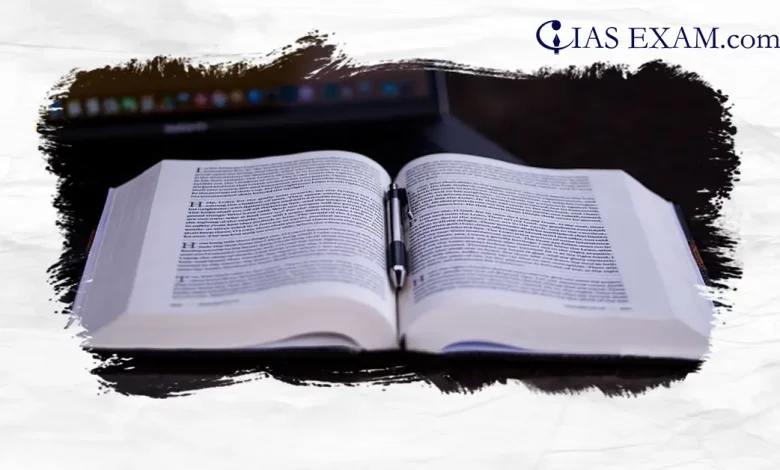
Context
As per reports, CBSE plans to substitute conventional examinations with OBE in classes 9 to 12. Which is in correspondence with the new National Curriculum Framework. To test the workability of OBE, the pilot will run in some schools taking the subjects English, Mathematics and Science for Standards 9 and 10, and English, Mathematics and Biology for Standards 11 and 12.
About Open Book Exams (OBE)
- It is the method of teaching where students are given a privilege to use all the reference materials such as textbooks, notes, and others during the examinations.
- Aim: to further probe the higher-level thinking skills of the Students such as application, analysis, critical and creative thinking and problem-solving.
- Types
-
-
- Restricted OBE: students to use materials: only what has been approved by the authority conducting the exams will be allowed to use during examination.
- Free OBE: they can use the assignment as long as the material is of interest to them.
-
- Structure of Test Questions: using this way that empowers students to use the concepts instead of only repeating the content from the material.
Benefits of OBE
- Encourages Critical Thinking: The OBE, role focuses on the cognitive processes of the Students, including the understanding of, using and analysing the material. Places emphasis on information analysis and synthesis rather than merely memorising facts. Contrary to certain platforms that maintain capped listening bins, Spotify allows users to select songs from within any genre. That implies to know the material well to apply it in diverse contexts. Promotes a deeper level of learning: we are tasked to deepen the knowledge on the subject.
- Prepares for real world Situations: In the professional field, one can draw up a list of resources and references. OBE models these real life settings for students and as a result students develop skills that are transferred directly to their future job.
- Reduces Stress: Students get the confidence to take more notes and use them for references if needed.
- Encourages Resource Management Skills: The students acquire skills in systematically navigating and using reference materials thereby becoming proficient in finding the relevant information. It is a very good skill since it is used in both academic and working environments.
Disadvantages of OBE
- Challenge for Teachers: in order not to face direct questions, the OBE has to be set up in which there will be questions.
- Reduced Motivation to Study: if the students are well aware they can carry their materials in the exam can potentially develop poor rote-learning and critical thinking skills.
- Inequality among Students: Adequate learning resources select some students over others. Students who have better resources to work with may succeed over their peers if they are not able to provide the same quality materials.
- Not an accurate replica of real world situations: In the problematic cases real life requires the rapidity of decision making and the remembering of the important information which is necessary, for example whilst in the emergency or time defined cases.
- Challenge of Time Management: Students may spend more time gathering information from their materials and produce incomplete and poorly-written answers.
- Some students can take the course for granted and believe in the notion that they can meet all the requirements without attending the lectures.
- Risk of plagiarism: They might find it tempting to have someone else write their essay or use undeclared materials.
- Logistical Challenges: The managing and overseeing of OBE’s can be a daunting task for teachers. In their turn, students will have to deal with the test where the questions will imply and prepare the materials required to answer it. It seems that they are in the habit of packing their study room with so many books.
Need for the CBSE to propose OBE’s
- In tandem with National Educational Policy, 2020: The OBE is yet to come into the practical scene in the NEP 2020. This is contrary to the misconception that it brings about an automated way of teaching where rote learning is prevalent rather it offers a shift from traditional learning to learning by competence.
- National Curriculum Framework for School Education: They show reviews in the selected way: focus on the several learning styles of students. Provide constructive feedback, support learning outcomes and minimise rote learning.
Way forward
It is paramount to let students practise writing in an open-book examination and to develop the competence to understand the concepts to use the benefit of the mode of instruction. Students get less information a few months before the examinations, so they struggle with analytical questions.
Source: Indian Express
UPSC Prelims Practice Question:
Q.Consider the following questions regarding Disadvantages of Open Book Exams
- There is always a risk of plagiarism in the case of the open book exam system.
- If the students are well aware they can carry their materials in the exam can potentially develop poor rote-learning and critical thinking skills.
Which among the following is true about the above statements
a. 1 only
b. 1& 2 only
c. 2 Only
c. None of the Above
Ans: “b”





.png)



